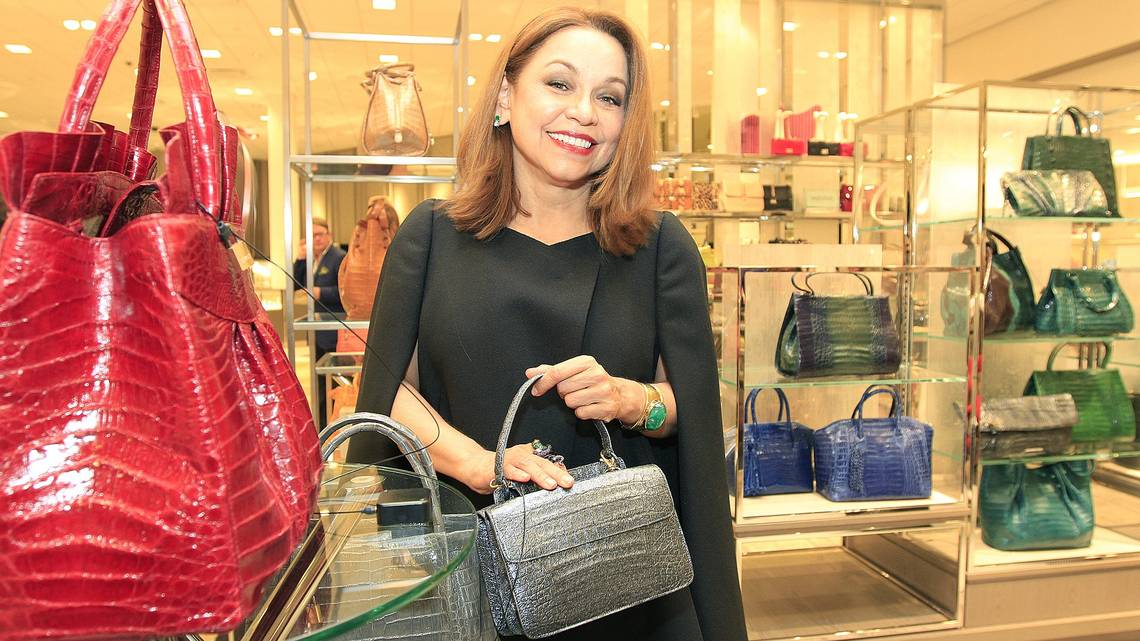Amidst its dazzling displays and celebrity accolades, the fashion realm frequently conceals a somber underbelly of environmental and ethical dilemmas. Recently, the spotlight fell on Nancy Gonzalez, a Colombian luxury handbag designer, illuminating one such issue. Renowned for her elite clientele, including luminaries from “Sex and the City” and Britney Spears, Gonzalez found herself sentenced to 18 months in incarceration for smuggling handbags crafted from the skins of protected reptiles. This episode unveils a narrative of legal transgression and serves as a stark illustration of the broader consequences tied to consumer choices. It underscores the pressing necessity for heightened consumer consciousness in safeguarding endangered species.
Breaking down the case
Central to this incident is the breach of the Convention on International Trade in Endangered Species of Wild Fauna and Flora (CITES), a global pact among nations aimed at safeguarding the survival of wild animals and plants by regulating their international trade. Despite the stringent regulations in place, Gonzalez engaged relatives and staff members to unlawfully transport these high-end goods into the U.S., blatantly evading the essential protections required to preserve these fragile species.
However, the issue reaches far beyond an individual designer or even the luxury fashion sector. It mirrors a widespread concern within global consumer culture, particularly pronounced in regions like Latin America, where biodiversity flourishes yet remains critically endangered. Consumers, you possess the pivotal role. Your choices as purchasers carry immense influence, capable of either bolstering conservation endeavors or, conversely, perpetuating the exploitation and decline of wildlife.
Latin America boasts some of the planet’s richest ecosystems, rendering it a focal point for both biodiversity and, regrettably, illicit trafficking in exotic wildlife and their derivatives. The allure of exotic skins frequently conceals the harsh truths of the wildlife trade. In Gonzalez’s instance, her accessories, fashioned from the hides of caimans and pythons, symbolized more than mere commodities—they embodied a grim commerce thriving in the shadows of society. This trade imperils the existence of species such as the jaguar, the harpy eagle, and the pink river dolphin, among numerous others.
Image 02

(Celebrities donning Nancy Gonzalez handbags)
Lessons learned..
This necessitates a thorough scrutiny of our consumption patterns. Every acquisition of a product crafted from an endangered species communicates a demand for such items, thus perpetuating the cycle of exploitation. Yet, should consumers opt to endorse sustainable and ethical brands, they hold the power to markedly diminish the allure of these goods, consequently curbing wildlife exploitation. Consumers must exercise vigilance and awareness regarding the provenance of their purchases, prioritizing transparency and sustainability over mere aesthetic appeal.
Furthermore, the influence wielded by celebrities and influencers in shaping consumer behavior cannot be overstated. The fact that handbags smuggled by Gonzalez found their way into the arms of celebrities like Victoria Beckham and Salma Hayek, and even graced prestigious venues such as the Metropolitan Museum of Art, underscores the profound impact of high-profile endorsements. Celebrities and influencers, your decisions carry weight. It’s imperative to exercise discernment in the products you promote, recognizing your pivotal role in either fostering a culture of sustainability or perpetuating exploitation.
The fashion industry, too, bears a significant responsibility. While luxury retailers like Neiman Marcus, Saks Fifth Avenue, and Harrods possess the ability to dictate trends, they are equally accountable for leading in corporate responsibility. This entails rigorous oversight of their supply chains and a steadfast commitment to ethical practices that prioritize the welfare of wildlife and the environment. Additionally, policymakers must play a crucial role in establishing and enforcing regulations to combat illegal wildlife trade and promote ethical consumerism.
Educational initiatives are not merely important; they are imperative. It is essential to educate yourselves about the environmental impact of your purchases. This involves understanding the species at risk, the legality surrounding the trade in certain wildlife products, and the ecological consequences of dwindling species populations. Education is your tool—it empowers you to make informed choices that align with conservation efforts rather than undermining them.








